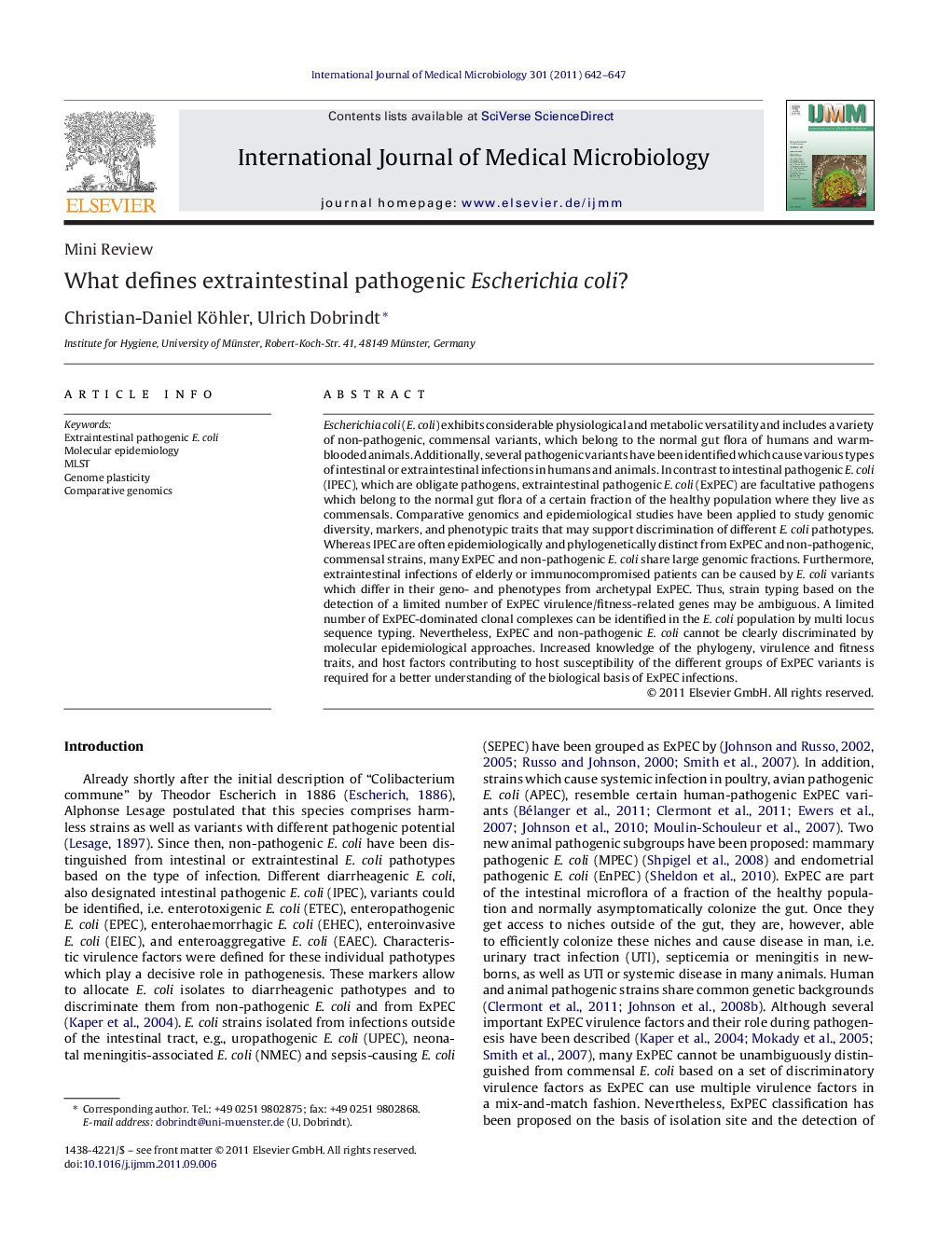| کد مقاله | کد نشریه | سال انتشار | مقاله انگلیسی | نسخه تمام متن |
|---|---|---|---|---|
| 2054202 | 1543713 | 2011 | 6 صفحه PDF | دانلود رایگان |

Escherichia coli (E. coli) exhibits considerable physiological and metabolic versatility and includes a variety of non-pathogenic, commensal variants, which belong to the normal gut flora of humans and warm-blooded animals. Additionally, several pathogenic variants have been identified which cause various types of intestinal or extraintestinal infections in humans and animals. In contrast to intestinal pathogenic E. coli (IPEC), which are obligate pathogens, extraintestinal pathogenic E. coli (ExPEC) are facultative pathogens which belong to the normal gut flora of a certain fraction of the healthy population where they live as commensals. Comparative genomics and epidemiological studies have been applied to study genomic diversity, markers, and phenotypic traits that may support discrimination of different E. coli pathotypes. Whereas IPEC are often epidemiologically and phylogenetically distinct from ExPEC and non-pathogenic, commensal strains, many ExPEC and non-pathogenic E. coli share large genomic fractions. Furthermore, extraintestinal infections of elderly or immunocompromised patients can be caused by E. coli variants which differ in their geno- and phenotypes from archetypal ExPEC. Thus, strain typing based on the detection of a limited number of ExPEC virulence/fitness-related genes may be ambiguous. A limited number of ExPEC-dominated clonal complexes can be identified in the E. coli population by multi locus sequence typing. Nevertheless, ExPEC and non-pathogenic E. coli cannot be clearly discriminated by molecular epidemiological approaches. Increased knowledge of the phylogeny, virulence and fitness traits, and host factors contributing to host susceptibility of the different groups of ExPEC variants is required for a better understanding of the biological basis of ExPEC infections.
Journal: International Journal of Medical Microbiology - Volume 301, Issue 8, December 2011, Pages 642–647